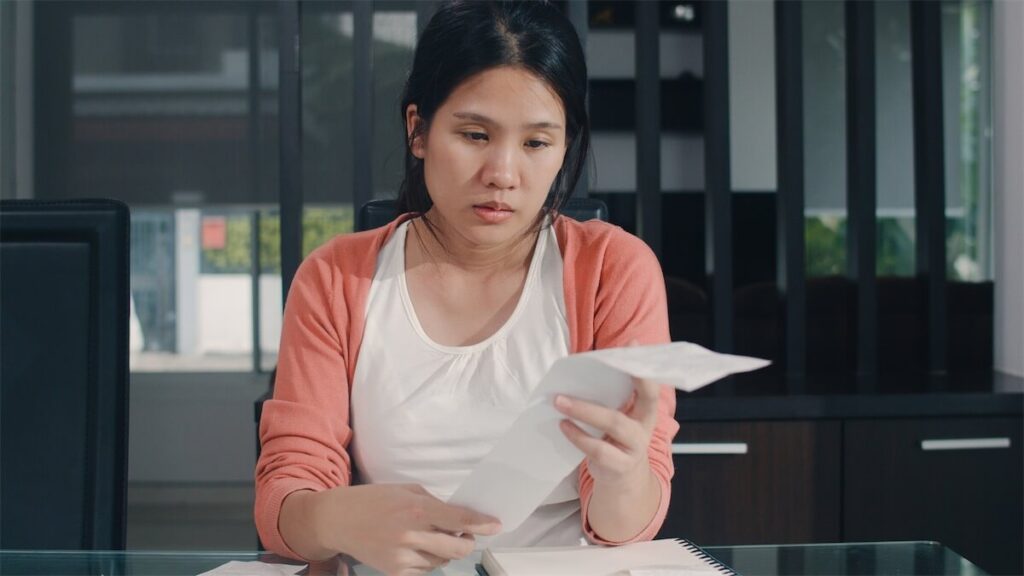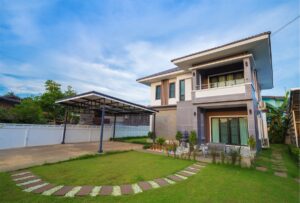Whether you’re young or old, the thought has almost definitely crossed your mind before – if I die… what happens to my stuff? If you own a home, you might already have a candidate in mind to whom you might want to give your home.
Besides the home, did you know that you’ll also be handing your mortgage and other things like cleaning and maintenance over? You might not exactly want this to happen – especially in the event of unforeseen circumstances, say, should your death be unexpected (touchwood) – your family might not be able to bear the financial strain.
So, whether you’re just curious, or are making plans on how to impart your legacy, here are some things for you to think about!
What happens to your mortgage
The HDB loan or bank loan that you took for your home will somehow need to be repaid. If you’re the sole borrower for your home, this leaves your family with 2 potential options.
If you’d like the home to be kept, the first option is that your mortgage will have to be paid off immediately. Only then will your family be able to keep your house.
If you live in an HDB home, you’ll already have the Home Protection Scheme (HPS) that pays off the remaining sum of your outstanding home loan.
If you opted out of it or live in a private home, you should ensure that you have the Mortgage Reducing Term Assurance (MRTA), which serves the same function. If you don’t already have MRTA, make sure to buy it.
HPS will make the payout to HDB so that the HDB loan can be repaid. On the other hand, MRTA payouts are made in cash.
We cover more about Home Protection Scheme here.
The other option available is to allow the administrator or executor of your will to sell your property. The proceeds from the sale can then be used to pay your property off, and the excess can be given to your family.
You might also want to take note of the fact that your next-of-kin needs to get a Grant of Probate before selling or transferring your property.
What if you’re not the lone borrower?
If you bought your home with a co-borrower, the mortgage would be inherited by them. After that, they’ll handle the mortgage like they would if they were a sole borrower. Your co-borrower needs to get a Grant of Probate to undertake these responses alone.
Your co-borrower will be subject to banks’ assessments on whether they can indeed handle the full repayment amount of the mortgage payment. This means that Total Debt Servicing Ratio (TDSR) is also a factor that will come into play.
Learn more about TDSR and MSR here.
Previously, your monthly salary would have also been considered when estimating your monthly loan repayment amount, but now, only your partner’s salary will be considered.
How can this change things? Well, there’s a chance that your bank might disqualify your co-borrower from the loan, which might lead to your bank foreclosing. This is likely something you want to avoid altogether.
However, suppose you don’t want to put your spouse in a difficult position. In that case, you can consider some workarounds, such as commit a large fixed deposit to the bank as collateral or take working children on as co-borrowers.

What if it’s an HDB flat, and you’ve got joint tenants or tenants-in-common?
Please note that the following is only applicable to non-Muslims as Muslims distribute these assets in accordance with religious law.
If you’re a joint tenant with other tenants, your share of the flat home will simply be transferred to the other remaining owners, as long as they’re above 21 years of age and are not a foreigner.
Before this happens, your joint tenants will need to lodge a notice of your death with the Singapore Land Authority (SLA). After that, they can seek more information by getting in touch with a relevant HDB branch.
If you’ve got tenants-in-common, the flat will be distributed in accordance with your will. This way, you can allocate the flat in a manner that’s a little different. For example, you get to choose who to allocate your flat to, like a parent or a child, instead of automatically going to your spouse.
Let’s say you don’t have a written will. In this case, the flat will be distributed following Singapore’s laws.
What else should your family look out for?
Typically, it will be the HDB loan or bank loan remaining on your home that’ll hit your family the hardest.
Many in Singapore have the misconception that they can take over the mortgage and make CPF payments just as you might be doing for your mortgage at the moment.
But things may not always play out as you or your family expects, especially if you forget to consider factors of loan eligibility by banks.
And it’s also not as simple as waiting for a life insurance payout to help cover the cost of the home. Should a payout get delayed, for instance, the money may not arrive in time to save your home.
One of the best things you can do to give clarity on how you’d like your assets to be distributed is to write a will. This is especially if your mortgage repayments have not been executed as how they look on paper. Perhaps another family member has been paying your mortgage instead of your co-borrower.
A will can truly help minimise disputes after your passing and can help prevent your family from having to suffer too much in legal costs.

What if you pass away without a will?
In the event that you pass away without a will, you’ll be considered as someone who has passed in “intestacy”, which is the term used to refer to somebody who has passed without a will.
For situations such as these, your assets will be held to the Intestacy Laws of Singapore.
This essentially implies that the Court can engage and distribute your wealth to whoever it considers the most qualified to control it. What this means for you is that the person the Court appoints may not be the original person you’d initially intended to help distribute your assets.
With that said, your next-of-kin can also apply to the Court to seek the Grant of Letters of Administration. These letters will help give a person the authority to distribute assets on your behalf, per Singapore’s law.
This arrangement is part of the Intestate Succession Act, which allows 7 classes of people to be considered an administrator.
In descending priority order, these classes are:
- The spouse;
- The children of the deceased;
- The parents;
- Brothers and sisters;
- Nephews and nieces;
- Grandparents; and
- Uncles and aunt
According to the laws of intestacy in Singapore, here’s how your assets might get distributed if you don’t have a will.
| Who you’re survived by | In the absence of… | What the survivor gets |
| Spouse | Children, parents | Spouse gets everything |
| Spouse & Children | Spouse gets half, children get the other half in equal portions | |
| Children | Spouse | Children get everything in equal portions. Grandchildren can claim their parent’s share in equal portions if their parent is deceased |
| Spouse & Parents | Children | Spouse gets half, parents get half in equal portions |
| Parents | Spouse, children | Parents get everything in equal portions |
| Siblings (or children of deceased siblings) | Spouse, children, parents | Siblings get equal portions. Their children can claim their share for them in equal portions if they are deceased |
| Grandparents | Spouse, children, parents, siblings, or children of siblings | Grandparents take the estate in equal portions |
| Uncles & Aunts | Spouse, children, parents, siblings, or children of siblings, grandparents | Uncles and aunts take the estate in equal portions |
| None | Everyone | Government takes everything |
Contact a mortgage brokeAdditional Buyers Stamp Duty (ABSD)r in Singapore for more advice on what happens to your home when you pass away, with a financial lens
Given how significantly your mortgage loan might affect what happens to your home, it might be wise for you to speak with a mortgage broker in Singapore to get the complete picture of what exactly might happen based on your family and financial situation.
Get in touch with us today to book a non-obligatory assessment!







